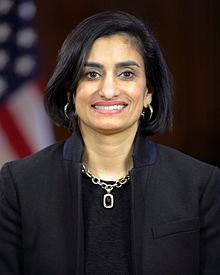Change Atop PA’s Department of Human Services
Teresa Miller is out and Meg Snead will be in as Pennsylvania’s new Secretary of the Department of Human Services.
 In separate news releases the Wolf administration announced that Miller, who has led DHS since 2015, “will be moving on to a new opportunity outside Pennsylvania” and leave her job at the end of April and that she will be replaced by Meg Snead, who currently serves as the governor’s Secretary of Policy and Planning.
In separate news releases the Wolf administration announced that Miller, who has led DHS since 2015, “will be moving on to a new opportunity outside Pennsylvania” and leave her job at the end of April and that she will be replaced by Meg Snead, who currently serves as the governor’s Secretary of Policy and Planning.
Snead’s nomination is subject to confirmation by the state Senate.
The Secretary of the Department of Human Services is important to SNAP members and Pennsylvania safety-net hospitals because the state’s Medicaid program is administered by that department’s Office of Medical Assistance Programs.
Learn more about Miller’s departure here and about Snead’s nomination here.
 The moratorium on the two percent sequestration of Medicare payments could be extended under a bill the U.S. House of Representatives may consider this week.
The moratorium on the two percent sequestration of Medicare payments could be extended under a bill the U.S. House of Representatives may consider this week. SNAP has urged Congress to extend the Medicare sequestration delay on a number of occasions, doing so most recently in this
SNAP has urged Congress to extend the Medicare sequestration delay on a number of occasions, doing so most recently in this  For the second consecutive day, Pennsylvania set a new high for new COVID-19 cases in a single day.
For the second consecutive day, Pennsylvania set a new high for new COVID-19 cases in a single day. CMS has updated its
CMS has updated its  On Tuesday, December 8 at noon (eastern) the FDA will host a webinar on its enforcement policy for sterilizers, disinfectant devices, and air purifiers during the COVID-19 pandemic as part of its series on respirators and other personal protective equipment for health care personnel use during the pandemic. Go
On Tuesday, December 8 at noon (eastern) the FDA will host a webinar on its enforcement policy for sterilizers, disinfectant devices, and air purifiers during the COVID-19 pandemic as part of its series on respirators and other personal protective equipment for health care personnel use during the pandemic. Go  In a tweet earlier this week, Centers for Medicare & Medicaid Services Administrator Seema Verma wrote that
In a tweet earlier this week, Centers for Medicare & Medicaid Services Administrator Seema Verma wrote that